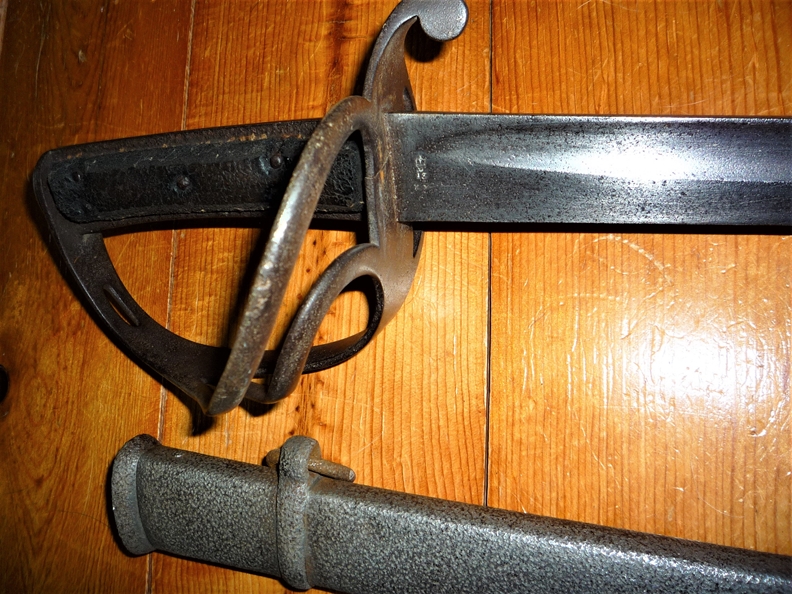I may try to restore the handles myself and if I feel I am unable to do it correctly, I will send it off to a restorer to be rehandled. I would like for the handles to be as original as possible.
My questions are: Do you know of any books on sword restoration, specifically restoration of handles, grips, etc. ?
Also, do you have any recommendations on sword restoration companies in the U.S.?
i will also do some cleaning on the blade and guard, but I am not trying to get the sword back into it's original condition, but a presentable functional condition. The scabbard is in pretty rough shape with some small holes corroded into it, but I plan to just leave that as it is.
Any help, ideas, recommendations and/or advice will be appreciated.
[ Download ]
[ Download ]
[ Download ]
